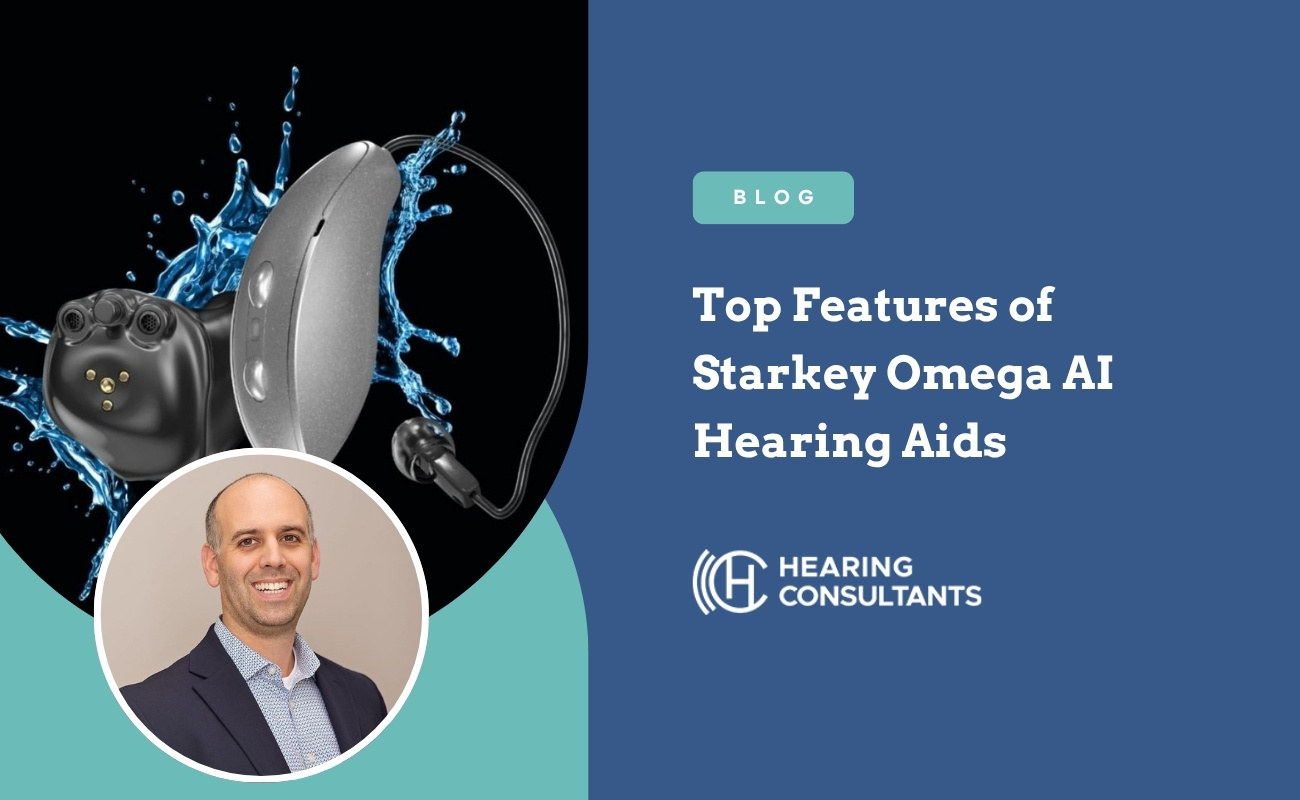The Role of Hearing Aids in Tinnitus Relief
.jpg)
Living with tinnitus - that persistent ringing, buzzing, or whistling sound in your ears - can significantly impact daily life, sleep, concentration, and overall well-being. While there's no cure for tinnitus, hearing aids have proven to be an effective management tool for many people. According to the American Tinnitus Association, approximately 50 million American adults experience tinnitus, with about 20 million facing chronic symptoms and 2 million suffering from severe, debilitating cases.
Understanding Tinnitus and Hearing Loss
Tinnitus often occurs alongside hearing loss, though not always. When hearing loss develops, the brain receives less external sound input from the environment. This reduction in auditory stimulation can lead to changes in how the brain processes sound signals. Research suggests that the brain may try to compensate for this decreased input by becoming more sensitive to internal neural activity, potentially causing or intensifying tinnitus symptoms.
Hearing aids can help address both conditions simultaneously. By amplifying external sounds, they provide the brain with the acoustic stimulation it needs, which may help reduce the perception of tinnitus. Many people report that their tinnitus becomes less noticeable when wearing properly fitted hearing aids, as the devices help redirect attention to meaningful external sounds rather than internal noise.
The relationship between hearing loss and tinnitus is complex. About 80% of people with tinnitus have some degree of hearing loss, but not everyone with hearing loss experiences tinnitus. This connection helps explain why hearing aids, primarily designed to address hearing loss, can be particularly effective in managing tinnitus symptoms.
Modern Hearing Aid Features for Tinnitus Management
Leading hearing aid manufacturers have developed sophisticated tinnitus management features in their latest models. These features go beyond simple sound amplification to provide comprehensive tinnitus relief options:
Widex Moment SHEER's Zen Therapy
The Moment SHEER uses Widex's unique Zen technology, which generates soothing tones and chimes based on fractal mathematics. These musical tones are designed to be both relaxing and unpredictable enough to avoid habituation. Through the Widex smartphone app, users can:
- Select from multiple Zen programs
- Adjust the pitch and tempo of the sounds
- Mix Zen tones with amplified environmental sounds
- Create custom programs for different situations
Starkey Genesis AI Tinnitus Management
The Genesis AI incorporates advanced tinnitus technology with artificial intelligence to provide personalized relief. The system includes:
- White noise options at different frequencies
- Ocean wave simulations
- Nature-inspired soundscapes
- Customizable volume and modulation settings
- AI-driven automatic adjustments based on your listening environment
Phonak Infinio Tinnitus Balance
Phonak's Tinnitus Balance feature in the Infinio combines several approaches:
- Broadband noise generator with adjustable bandwidth
- Integration with environmental sound amplification
- Fine-tuning capabilities for frequency and volume
- Multiple pre-set sound options for different situations
- Ability to save preferred settings for quick access
Signia IX Tinnitus Management
The Signia IX offers a comprehensive approach to tinnitus management through:
- Static noise therapy signals
- Ocean wave soundscapes
- Customizable notch therapy that targets specific tinnitus frequencies
- Binaural synchronization of tinnitus signals
- Integration with Signia's smartphone app for precise adjustments
Each of these hearing aid models allows for precise programming by our audiologists to match your specific tinnitus characteristics and preferences. The combination of amplification and sound therapy provides a flexible approach to tinnitus management that can be adjusted as your needs change throughout the day.
How Hearing Aids Help with Tinnitus
Hearing aids can help manage tinnitus in several ways:
Sound Enrichment
- Amplifying environmental sounds
- Reducing the contrast between tinnitus and background noise
- Making tinnitus less noticeable during daily activities
- Providing a richer sound environment
Masking Effects
- Introducing pleasant background sounds
- Offering various sound therapy options
- Creating a sound-rich environment that helps distract from tinnitus
- Providing customizable masking sounds
Neural Stimulation
- Keeping auditory pathways active
- Providing consistent sound input
- Supporting healthy auditory processing
- Maintaining neural connections
Stress Reduction
- Reducing listening effort
- Making communication easier
- Decreasing social isolation
- Lowering anxiety related to hearing difficulties
Customized Programming
When we fit hearing aids for tinnitus management, we take several steps to ensure optimal results:
Comprehensive Evaluation
- Detailed hearing assessment
- Tinnitus characteristics measurement
- Impact on daily life assessment
- Individual needs analysis
Real Ear Measurements
We use Real Ear Measurements to verify that your hearing aids are providing appropriate amplification. This precise fitting method helps ensure you receive maximum benefit for both hearing loss and tinnitus management.
Personalized Settings
- Custom sound therapy programs
- Individual frequency response adjustments
- Specific tinnitus feature programming
- Regular follow-up adjustments
Combining Technologies for Better Results
Modern hearing aids often integrate multiple approaches to tinnitus management:
Sound Therapy Options
- White noise
- Nature sounds
- Ocean waves
- Customizable soundscapes
- Musical tones
Smart Technology Integration
- Smartphone app controls
- Bluetooth streaming capabilities
- Multiple program options
- Automatic environmental adjustments
Lifestyle Considerations
The success of hearing aids in managing tinnitus often depends on how they fit into your daily life:
Daily Activities
- Work environment considerations
- Social situation management
- Exercise and physical activity
- Sleep and relaxation needs
Sound Environment Management
- Different programs for various environments
- Automatic adjustments for changing situations
- Custom settings for specific activities
- Volume control options
The Importance of Professional Fitting
Professional fitting and ongoing support are crucial for successful tinnitus management with hearing aids:
Initial Setup
- Precise programming for your specific needs
- Careful explanation of features and controls
- Proper fit and comfort adjustments
- Usage instructions and practice
Follow-up Care
- Regular check-ups
- Program adjustments as needed
- Support for changing needs
- Ongoing tinnitus management guidance
Additional Management Strategies
While hearing aids play a significant role in tinnitus management, they work best as part of a comprehensive approach:
Sound Therapy
- Understanding different sound options
- Learning when to use various programs
- Identifying trigger situations
- Developing coping strategies
Relaxation Techniques
- Stress management strategies
- Mindfulness practices
- Sleep hygiene tips
- Relaxation exercises
Education and Counseling
- Understanding tinnitus mechanisms
- Learning management techniques
- Developing realistic expectations
- Building confidence in management skills
Long-term Success
Success with tinnitus management through hearing aids often develops over time:
Adaptation Period
- Getting used to amplified sounds
- Learning to use tinnitus features
- Developing management routines
- Building confidence with devices
Ongoing Adjustments
- Fine-tuning programs as needed
- Adapting to changing needs
- Updating management strategies
- Regular device maintenance
Measuring Progress
- Tracking tinnitus awareness
- Noting improvement in daily activities
- Monitoring stress levels
- Recording management success
The Latest Advances
Current hearing aid technology offers sophisticated tinnitus management options:
Advanced Processing
- Artificial intelligence features
- Environmental sound analysis
- Automatic program adjustment
- Personalized sound therapy
Connectivity Options
- Streaming capabilities
- App-based controls
- Remote adjustment options
- Integration with other devices
Schedule Your Tinnitus Consultation
If you're experiencing tinnitus, our audiologists can help determine if hearing aids might provide relief. We'll conduct a thorough evaluation of your hearing and tinnitus, discuss your specific challenges, and develop a management plan tailored to your needs. We understand that living with tinnitus can be difficult, and we're here to help you find the most effective solutions. Contact us today to schedule your consultation and take the first step toward better tinnitus management.
Get in touch with
Hearing Consultants
Contact our clinic to schedule an appointment today!







